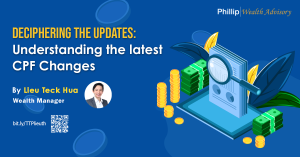Permanent Life Partners OR Tying the Knot: What are the Implications on Financial Planning? February 22, 2022

Many couples today choose to remain as permanent life partners without the legal formality of “tying the knot”. Here, we explore the implications of their choices in terms of financial planning. Here are 3 areas we will look at:
1. Acquiring of Real Estate
In land-scarce Singapore where living expenses are relatively high, securing a decent roof over your head is very important.
Fortunately, with the implementation of mandatory savings through the CPF scheme and a healthy job market, most Singaporeans or permanent residents are able to afford public housing.
This leads us to the question: will property remain affordable for future generations or will they end up renting like our Western counterparts?
1.1 Owning a HDB flat (Public Housing)
The Housing and Development Board (HDB) has clear criteria for non-married couples’ ownership of housing properties in Singapore. Public home ownership is allowed under one of the following schemes:
i) Fiancé/ Fiancée Scheme, i.e. couples have to solemnise their marriage within 3 months from the resale completion date
ii) Joint Singles Scheme, i.e. singles who are either unmarried or divorced, 35 years and above
You may or may not be eligible for any HDB grants to subsidise your purchase.
For further details go to: https://www.hdb.gov.sg/residential/buying-a-flat/resale/eligibility
1.2 Buying a Private Property
You may jointly purchase a private property even if you are not legally married.
There are two methods of jointly owning a property with another person:
i) Joint Tenancy
When a property is jointly owned by two individuals under joint tenancy, both parties have equal rights to the property. The right of survivorship applies as the property is automatically transferred to the surviving co-owner upon the death of one co-owner. This method is commonly used by to-be-married or married couples where home is meant to be a roof for the family.
ii) Tenancy in Common
When a property is jointly owned by two individuals under tenancy in common, it provides greater clarity to the shares of ownership.
Each owner retains his/her shares to the property throughout. If one co-owner passes on, his or her share(s) will go to the estate of the deceased.
However, careful planning is required on how the property is to be dealt with upon the passing of any co-owner to avoid any potential conflicts that may arise in the future.
2. Provision for Retirement Needs
Staying together might mean having to take care of each other, physically and financially. It becomes especially necessary to provide for each other’s retirement needs.
This includes looking at:
i) Lifestyle Needs
Budgeting is a key area for retirement. Spending time together during your golden years would mean being able to pool resources and share simple pleasures in life. The cost, portion, as well as calories from a plate of “Char Kway Teow” (stir-fried rice noodle), can now be shared by two instead of one. Sometimes, the thought of enjoying it together matters more than having the whole plate and eating it alone.
With the COVID-19 pandemic receding and many more countries opening their borders, more money may be allocated for traveling.
By doing effective budgeting, retirement nest eggs can be made to last for 30 years or longer.
The Lasting Power of Attorney (LPA) is an important detail to look into as strokes and dementia are not uncommon among retirees.
A life permanent partner will have difficulties obtaining a court order to ensure a mentally incapacitated partner’s personal well-being and/or financial matters if there is no LPA.
ii) Medical Needs
One of the key pillars in retirement is the CPF Medisave Account. You may use your Medisave account to pay for the medical treatments of your loved ones which include your spouse, children, parents, grandparents, or siblings.
Source: https://www.cpf.gov.sg/member/healthcare-financing/using-your-medisave-savings
However, for couples without a legal relationship, this is not an option. Therefore, having sufficient medical insurance and critical illness cover is paramount.
The long-term affordability of medical insurance is also a key consideration.
The cost of medical insurance is constantly rising as inflationary pressures impact medical services in Singapore. So, it is important to plan for medical insurance in retirement to ensure you have sufficient savings for a rainy day.
3. Distribution of Estate
When an individual passes on without a will, Section 7 of The Intestate Succession Act lays out the distribution of one’s assets:
| Survivor | Absent | Who Gets What |
| Spouse | No children/parents | Spouse gets 100% |
| Spouse & Children | N.A | Spouse gets 50%;Children get 50% in equal portions. |
| Children | No spouse | Children get 100% in equal portions.Grandchildren can claim their parent’s shares in equal portions if their parents are dead. |
| Spouse, Parents | No children | Spouse gets 50%Parent gets 50% |
| Parents | No spouse & children | Parent get 100% in equal portions. |
| Brothers and sisters (or children of the deceased brother or sister) | No spouse, children, or parents | Brothers and sisters get equal portions. Children can claim their share for them in equal portions if they are deceased. |
| Grandparents | Spouse, children, parents, brothers, and sisters or children of such brothers and sisters | Grandparents get 100% in equal portions. |
| Uncles and Aunties | Spouse, children, parents, brothers, and sisters or children of such brothers and sisters, grandparents | Uncles and aunties take 100% in equal portions. |
| None | No Next of Kin | Government gets 100%. |
Source: Singapore Legal Advice website – https://singaporelegaladvice.com/
Muslims follow Faraid (Muslim Intestate Law) as provided under the Administration of Muslim Law (AMLA).
Permanent life partners need to look into estate planning so that their wishes and distribution intentions are properly laid out. Otherwise, their assets may be distributed against their wishes to people/parties to whom they do not wish to benefit. This can be achieved through the writing of a will.
This information is meant to provide insights into the Permanent Life Partnership arrangement and its implications on financial planning. It does not constitute professional advice or services rendered. Information provided here may not be up to date.
For further details, please consult a financial adviser or legal professional.
Reference:
- [1] https://www.hdb.gov.sg/residential/buying-a-flat/resale/eligibility
- [2] https://www.cpf.gov.sg/member/healthcare-financing/using-your-medisave-savings
- [3] https://singaporelegaladvice.com/
Contributor:

Andrew Chionh
Financial Services Manager, Phillip Securities Pte Ltd
(a member of PhillipCapital)
bit.ly/TTPandrew
Disclaimer
These commentaries are intended for general circulation. It does not have regard to the specific investment objectives, financial situation and particular needs of any person who may receive this document. Accordingly, no warranty whatsoever is given and no liability whatsoever is accepted for any loss arising whether directly or indirectly as a result of any person acting based on this information. Opinions expressed in these commentaries are subject to change without notice. Investments are subject to investment risks including the possible loss of the principal amount invested. The value of the units and the income from them may fall as well as rise. Past performance figures as well as any projection or forecast used in these commentaries are not necessarily indicative of future or likely performance. Phillip Securities Pte Ltd (PSPL), its directors, connected persons or employees may from time to time have an interest in the financial instruments mentioned in these commentaries. Investors may wish to seek advice from a financial adviser before investing. In the event that investors choose not to seek advice from a financial adviser, they should consider whether the investment is suitable for them.
The information contained in these commentaries has been obtained from public sources which PSPL has no reason to believe are unreliable and any analysis, forecasts, projections, expectations and opinions (collectively the “Research”) contained in these commentaries are based on such information and are expressions of belief only. PSPL has not verified this information and no representation or warranty, express or implied, is made that such information or Research is accurate, complete or verified or should be relied upon as such. Any such information or Research contained in these commentaries are subject to change, and PSPL shall not have any responsibility to maintain the information or Research made available or to supply any corrections, updates or releases in connection therewith. In no event will PSPL be liable for any special, indirect, incidental or consequential damages which may be incurred from the use of the information or Research made available, even if it has been advised of the possibility of such damages. The companies and their employees mentioned in these commentaries cannot be held liable for any errors, inaccuracies and/or omissions howsoever caused. Any opinion or advice herein is made on a general basis and is subject to change without notice. The information provided in these commentaries may contain optimistic statements regarding future events or future financial performance of countries, markets or companies. You must make your own financial assessment of the relevance, accuracy and adequacy of the information provided in these commentaries.
Views and any strategies described in these commentaries may not be suitable for all investors. Opinions expressed herein may differ from the opinions expressed by other units of PSPL or its connected persons and associates. Any reference to or discussion of investment products or commodities in these commentaries is purely for illustrative purposes only and must not be construed as a recommendation, an offer or solicitation for the subscription, purchase or sale of the investment products or commodities mentioned.
About the author
Andrew Chionh
Financial Services Manager, Phillip Securities Pte Ltd
Andrew is an experienced Financial Consultant with a demonstrated history in the financial services industry. He has been a Financial Services Manager with PhillipCapital since 2007.
He has assisted many clients ranging from the regular man on the street to high-net-worth individuals & business professionals in building their financial assets and preserving them for their loved ones.
His ability to listen patiently and get into in-depth discussions with his clients has uncovered many areas of concern and implemented solutions to avert potential pitfalls in their financial planning.

 Japan’s Economic Resurgence: Unveiling the Tailwinds Behind Nikkei 225’s Record Leap
Japan’s Economic Resurgence: Unveiling the Tailwinds Behind Nikkei 225’s Record Leap  How to soar higher with Positive Carry!
How to soar higher with Positive Carry! ![[Smart Park] Buy Insurance, Get Rich Quick? Not Exactly, But This Comes Close [Smart Park] Buy Insurance, Get Rich Quick? Not Exactly, But This Comes Close](https://www.poems.com.sg/wp-content/uploads/2024/03/Valerie-Lim-LI-X-SMART-Park-Article-300x157.jpg) [Smart Park] Buy Insurance, Get Rich Quick? Not Exactly, But This Comes Close
[Smart Park] Buy Insurance, Get Rich Quick? Not Exactly, But This Comes Close  Deciphering the Updates: Understanding the latest CPF Changes
Deciphering the Updates: Understanding the latest CPF Changes 









